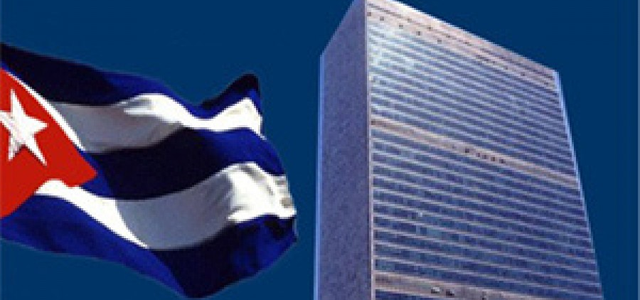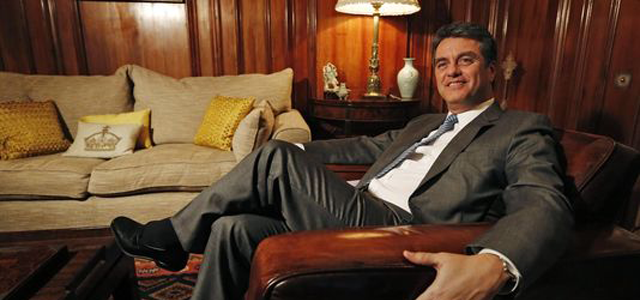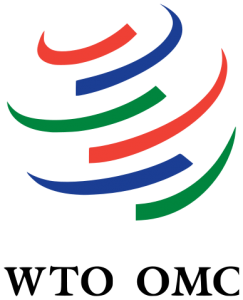 The selection of the next WTO Director General is quickly narrowing to the top two contenders after several months of engagement and discussions between the nine initial nominees and the organization’s 159 member states. The race narrowed to five candidates earlier this month, and the current second round of consultations should narrow it to a final two this week. The new DG will be selected before the end of May 2013 and assume office on 1 September.
The selection of the next WTO Director General is quickly narrowing to the top two contenders after several months of engagement and discussions between the nine initial nominees and the organization’s 159 member states. The race narrowed to five candidates earlier this month, and the current second round of consultations should narrow it to a final two this week. The new DG will be selected before the end of May 2013 and assume office on 1 September.
The WTO process has been praised as one of the most open and transparent selections of any major multilateral, following significant reforms made after the abrasive 1999 contest. Even Pascal Lamy’s selection in 2005, which handed all three international financial institutions to developed states, did not dissuade members of the process’s preferability to that of other major multilaterals. The process was cited by the Canadian government in 2006 as a model process with mechanisms that should be implemented for selection of the UN Secretary General.
“Efforts to propose a more open and rigorous approach to the selection of the Secretary-General can draw inspiration from similarly evolving processes within the OECD and the WTO. Both organizations have established selection mechanisms that are consultative, transparent and merit-based—aimed at ensuring that the most qualified and suitable person is selected for the job. In both cases, the position is advertised, a series of consultations with member states is held, the results are made public and are then used to narrow the field of candidates…”
However, a core mechanism that drives the process may be challenged this year, creating challenges for the organization.
This year’s contest opened on 1 December, 2012, nine months prior to the incumbent’s end of term, as triggered by the 2002 reforms. Nine candidates were put forward by member states over the defined 1-month nomination period, and were publicly announced upon their receipt by the Chair of the organization’s general Council. The nominees included the following:
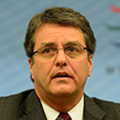
(Brazil)
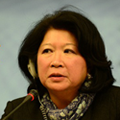
(Indonesia)
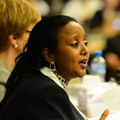
(Kenya)
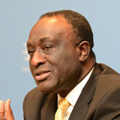
(Ghana)
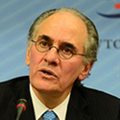
(Mexico)
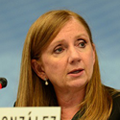
(Costa Rica)
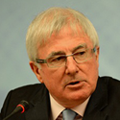
(New Zealand)
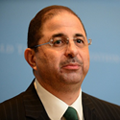
(Jordan)
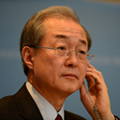
(Republic of Korea)
This number of nominees was the highest since the organization’s creation in 1995. The nominations were heavily tilted toward developing economies, signifying the intense interest among those states in recapturing at least one of the major financial institutions. (All but one of the previous Directors General had been from developed economies.) Three of the nine nominees were women, each from a different region, perhaps reflecting growing awareness of the critical role which women play in local economic development.
Consensus around a single candidate is the preferred goal for most intergovernmental selections and the WTO is not different in this regard. Following the close of the nominations at the end of December, the process this year has provided for a number of opportunities to narrow the field toward this goal. And this is where possible problems may emerge in the selection. But let’s first note the positive aspects of the process to date.
At the end of January, each of the nine nominees were invited to make a presentation before the full membership and engage in a question-and-answer session. Though other multilaterals usually include a round of such “interviews,” the WTO process is far more transparent in this aspect. The presentations included an opening statement by each candidate, followed by a question-and-answer period. Afterwards, each nominee hosted a press conference and commented further on their credentials as a candidate. The full statement and audio of each candidate’s “interview” and press conference was made available on the WTO website. This degree of openness, allowing information on candidates to be equally and publicly accessible to all stakeholders, helps confirm that the eventual consensus is the result of an open and fair competition among candidates. The FAO implemented a similar process for putting candidates before the full membership in selecting its Director-General in 2011 and posting their statements on its website.
During the following months, the nine candidates were encouraged to engage with individual member states, regional groups and members of WTO categories to present their credentials in open campaigns. Following a quickly growing trend in intergovernmental races, a number of the nominees launched campaign websites (see here and here) and posted updates to Facebook and Twitter. As in 2005, many traveled to each region to garner support. A number were interviewed by interested development groups or responded to questionnaires about their views and priorities. The WTO itself posted photos on its Flickr account of the candidates during the General Council meeting. The Washington Post, The Hindu and other publications noted the odds for this year’s candidates from online betting forums, but jokingly cautioned that, in 2005, Pascal Lamy had not been the front runner on such sites until the very end of the race.
There is of course a downside to such campaigns. Terence Stewart, a Washington trade attorney who has closely monitored the selection, noted earlier this year that “reports have suggested horse trading going on between some candidates’ host countries and other WTO members.” (The same suspicion arose during the last month of the 2006 Secretary-General’s race.) While open campaigns are far preferred to the closed-door selections of the past, they do present their own problems. The unevenness of the playing field between richer and poorer countries, the potential for corruption and the desirability for global campaign rules is an area that deserves further study.
The process move to narrowing the field through facilitated consultations in April by an ad hoc committee that consisted of the Chair of the General Council and two Facilitators. The Chair laid out the process for narrowing the field in a memo issued in March. Each of the 159 WTO member states were consulted individually by the committee and asked a single question – “What are your preferences?” Each was requested to name the four candidates they preferred over the others. No negative preferences were allowed, noted Stewart.
“Thus, at no time are members indicating “I can’t support candidate X” – from my discussions in Geneva, an important element to keeping the process positive as viewed both by the Secretariat and by the members.”
In the facilitation committee’s report following the first round, the Chair noted that five candidates emerged as the most likely to attract a breath of support, both across regional groups and the categories of membership in the WTO (LDCs, developing countries and developed countries). The committee notified the four candidates which received the least support and their state sponsors prior to informing the full membership and reminded them of the expectation of their withdrawal from the contest.
The field now consists of Mari Elka Pangestu (Indonesia), Tim Groser (New Zealand), Herminio Blanco (Mexico), Taeho Bark (Republic of Korea) and Roberto Carvalho de Azevêdo (Brazil).





The African, Latin American and the Asia-Pacific regions each put forward multiple nominees. Both candidates from Africa were eliminated, with one analyst suggesting it was the lack of consensus on a single candidate that cost the region. The membership was also split on the multiple nominees from the Asia-Pacific and the Latin American regions, but two nominees from those succeeded in garnering sufficient support to continue, as did Tim Grosner, the sole candidate from a developed economy.
Early speculation suggested that it was widely accepted among members that the post should go to a a developing economy. As the last such state to hold it had been Asian, the assumption was that the post would go to an African state this year. (This was also the favored outcome by the online betting forums mentioned above.) With the two African candidates eliminated this month, such speculation would now suggest that Brazil’s Azevêdo or Mexico’s Blanco are the best bets. Latin America’s advantage is supported by the post having been previously held by nationals from each of the contending regions still in the race (and in Grosner’s case, by his sponsoring state New Zealand).
Here’s where the potential challenge to the otherwise spot-on process arises. After the results of the first round were announced, statements by the governments of Ghana and Kenya suggested that their nominees would not automatically withdraw despite their poor showing. This poor sportsmanship was a key factor in the 1999 selection and contributed to reforms for which the WTO has been praised. Nonetheless, analysts such as Terence Stewart suggest the possible political fall-out from challenging the broadly supported process will convince Mohamed and Kyerematen to eventually withdraw rather than force a vote which could be disastrous for the organization and the process.
“Thus, arguably Kenya (and Ghana and possibly others) could refuse to agree to a consensus finding in the hope that they could generate sufficient votes to win a vote at the General Council for a candidate not still in the process being run by the Chair. While such an option certainly exists (and is intended to provide a road forward where the membership is deadlocked), few countries have been willing to place the organization in the situation of forcing such a procedure where it flows from the discontent of one or two with the agreed procedures being followed. Thus, it seems unlikely that Kenya and Ms. Mohamed will create a crisis out of her elimination in the process.”
…
If there are delays or a major challenge to the procedures at the end requiring a vote, it is likely that the WTO members would lose focus and any chance for a successful Bali Ministerial would be significantly reduced. In the past, when the process has not worked as intended, the conflict between Members has put overall progress at the WTO on hold for some extended period of time. Thus, for the health of the organization, already faced with daunting problems in maintaining its relevance and advancing an agreed upon agenda, let us hope that the initial reactions by some of the candidates and their Members prove to be a temporary disagreement with the system rather than the basis for a challenge to the ongoing selection process.”
The second round of consultations is currently underway and will conclude next Wednesday. Each member state will be asked for their top two preferences. The two who receive the broadest support across regions and categories will continue and the remaining three will be eliminated from the final round.
Despite – or perhaps due to — the elimination of the region’s two nominees, African governments will play a critical role in the next round. Support from African states will be highly sought now that they have no valid candidate of their own in the race. While the bloc’s 42 votes alone will not guarantee another region’s candidate moving to the next round, no candidate can move forward without adding a large number of them to the “breadth of support” needed to do so. Playing this role rather than undermining confidence in the process could be beneficial to African states in the form of a valuable “consolation prize” – the top post at UNCTAD, the UN’s trade and development body, which also come available this year, top choices in the Deputy Directors General selections or one of any other soon-to-be-filled intergovernmental posts.
Even with the challenges from Mohamed and Kyerematen, the WTO process will continue to be seen as a model for other multilaterals. By setting nomination deadlines, providing opportunities for engagement between governments and candidates, and conducting a transparent consultations process that fairly narrows the field to consensus, the WTO process includes many of the necessary mechanisms for improving senior leadership selection in major multilaterals and is generally met with satisfaction in comparison to other contests.
As noted in the Chair’s report following the first round, “Let me reiterate that this process is your process: the decision to appoint the new Director-General is yours to make.”



